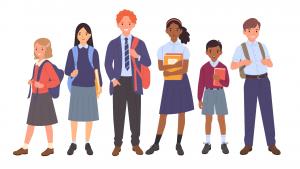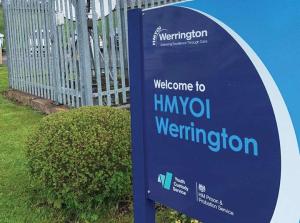As Children’s Commissioner, I have spoken to hundreds of thousands of children, parents and carers, hearing about their experiences of school, and the challenges that prevent children from getting a good education.
The Big Ambition results show this generation clearly prizes education – they see it as important in and of itself, but also as a pathway to opportunity, whatever path they choose to pursue. The majority of children said they enjoyed being in school or college, they find learning fun, and take pride in their schoolwork. And children were grateful for the brilliant teachers in their schools and colleges.
My young Ambassadors have shared their views on each of the themes from The Big Ambition, continuing with education:
Ben:
As young people, we value education and recognise the vital role teachers play in shaping our future success. As a 17-year-old boy in sixth form, I understand the importance of working hard now to pave the way for later achievements.
It’s essential that every child has access to quality education, feels safe and happy in school, and receives the support they need to thrive. This is particularly crucial for students like me, who have Attention Deficit Hyperactivity Disorder (ADHD) and Developmental Language Disorder (DLD) and any other Special Education Needs and Disabilities (SEND), as we may require additional assistance due to our unique learning styles.
Those who struggle or fall behind academically should receive prompt and accessible support, especially individuals with special educational needs or disabilities. It’s imperative that no one, whatever their needs, is left behind, and efforts should be made to reintegrate students who disengaged with education.
Evie:
Education is our biggest tool when it comes to changing the lives of young people. I think that education should be used as a centralised place for support, with teachers provided with the training and knowledge to support or lead students in the right direction.
In my experience, the education system does not support students who don’t fit the mould of an ‘ideal’ student, and this seems particularly true for disabled and neurodivergent young people. Something that I strongly feel must happen within the education system is a widening of how we define success, and how we use assessments and exams to measure this success. Different learning styles and different ways of demonstrating intellect have to become accepted and even celebrated – not only to do justice to disabled and neurodivergent pupils, but to do justice to all students, and the kaleidoscope of ways intelligence, creativity and innovation can manifest.
Rylie:
My big ambition is to improve the education system so that it empowers future leaders, inspires and prepares young minds for success in the world of work. Education should be a space where dreams are built, and futures are empowered.
I really struggled in mainstream education, found it really hard to engage and found the environment to be toxic. It’s such a one size fits all system that just doesn’t suit everyone. I think there needs to be better support for children and young people in education, particularly with wraparound support for young people in schools to ensure that every young person has the correct support to be able to engage and excel.
I also think we should revisit how we assess young people’s success in school – there is immense pressure put on young people during exam season. There should be better ways to assess a young person’s ability by combining exams, coursework, projects and oral exams, rather than having a whole grade determined by one single exam. Lots of young people can crumble under the pressure, so we need to ensure that systems support young people at these stressful times.






